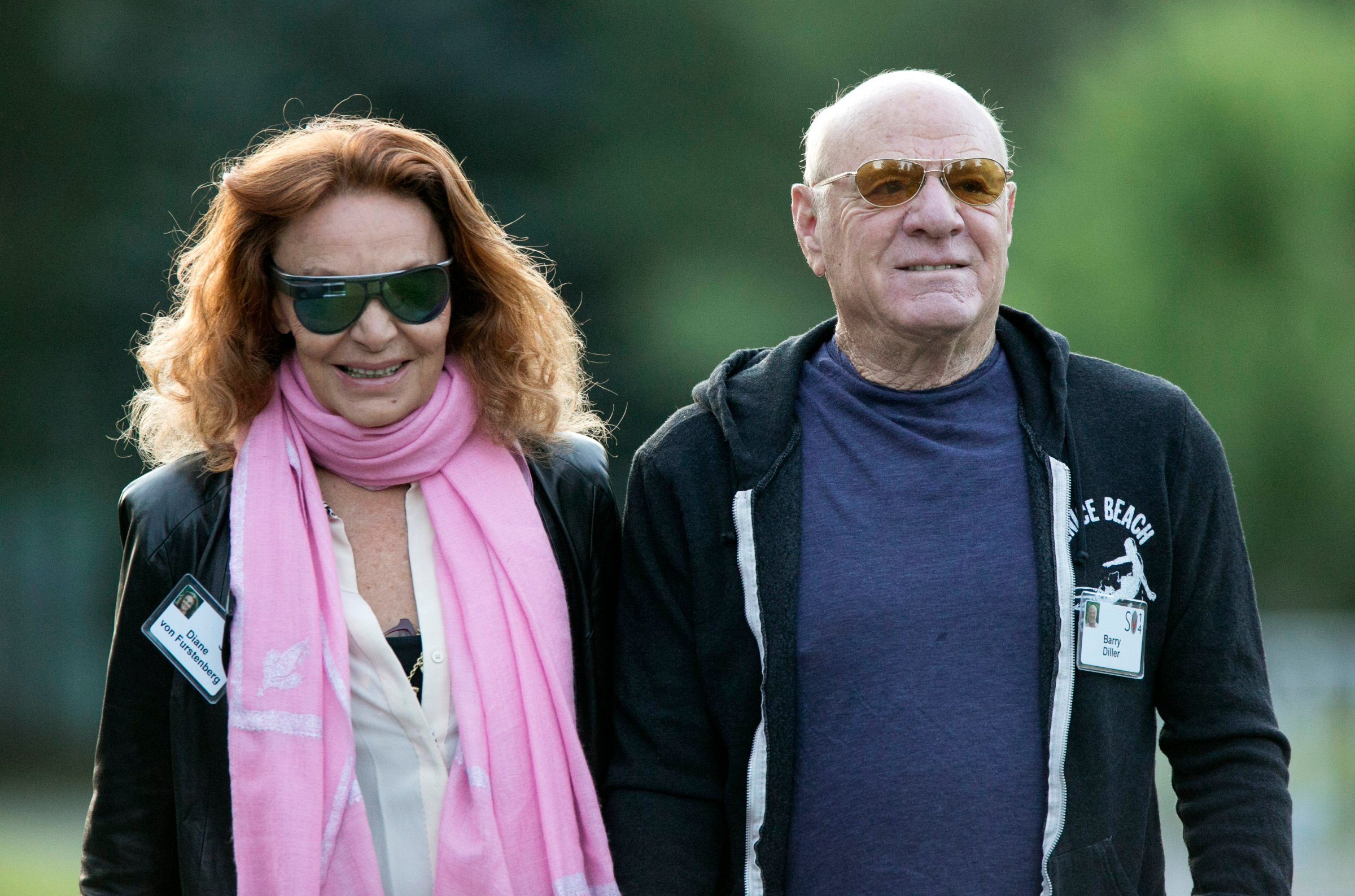
How high is Barry Diller’s tolerance for the tawdry? The 72-year-old billionaire, who is the chairman and senior executive of Internet holding company IAC, has in recent years added Tinder—presently dogged by a high-profile sexual harassment case—and a host of other dating-related businesses to his portfolio. And Thursday the company announced that it had acquired a popular Latvia-based social network, Ask.fm, presently best known for its connection in media reports of more than a dozen teenager suicides over the past two years.
“We would not have done this deal,” says Doug Leeds, who will be supervising the site, “if we didn’t think we could make the company known for something else.” Leeds is the CEO of Ask.com, one of IAC’s sites, which began its life nearly two decades ago as Ask Jeeves. Leeds first became interested in Ask.fm, strangely enough, after the social network’s bad press made him fret for his own company’s reputation. He reached out to Ask.fm’s management team last year to insist that the site distinguish itself more from Ask.com. But in subsequent conversations, he began to learn a little bit about just how big the site had become. He began to see the kind of business challenge he says he wanted.
If you don’t know about the social network, find a teenager and, well, ask. The site has 120 million worldwide users, nearly half of whom are high school age, with more than 10 percent residing in the United States. Users sign up and open themselves to questions from anyone—classmates, peers, mysterious Internet trawlers—posed both anonymously and with names attached. Rarely do they urge suicide in a plain, literal fashion. Often they instead tackle the trivial business of high school (homework, crushes, the social pecking order). But the effect even then is of a virtual locker room, one filled with gossip and catcalls, one that follows you home, on the always-on smartphone stuffed in your pocket.
Earlier this summer, I wrote about the site and its effect on the brawny yet brittle teenage brain, which according to mental-health experts chases immediate rewards without much regard for the long-term consequences. Teenagers get hooked on something before they figure out how, why and what it means.
That sense of excitement and uncertainty appears in Ask.fm’s origin story too. Two brothers, Ilja and Mark Terebin, ages 35 and 29, founded the site in 2010 only in search of a social network to make them a buck. It grew so big, and so quickly, that only later did they develop a philosophy to justify its existence. The site, they said in an interview in April, would aid in teenagers’ self-discovery through expanding freedom and opportunities for self-expression. And they said the media outlets that had criticized them over lax safety standards, not Ask.fm’s users, were the real bullies.
But it’s a common story in entrepreneurship—every young, scrappy company is one day forced to grow up. And sometimes a grown-up company has no need for the young people who built it: The Terebins will leave Ask.fm and have no further affiliation with it, although headquarters, and the site’s employees, will remain for the time being in their home city of Riga. Leeds says, “They’re smart and passionate people, but they had a philosophy for the company that was incorrect.”
When asked his plans for the future, Ilja replied in an e-mail, “Fruits and vegetables, books and a billion dollar idea. : ).” IAC declined to disclose how much the company paid for the site.
Ask.fm’s new owners insist they will be zealous about users’ safety. Before completing the deal, they partnered with two state attorneys general—New York’s Eric Schneiderman and Maryland’s Douglas Gansler—and produced a detailed agreement outlining new safety standards. The site has agreed to expand its content-monitoring team, work with suicide-prevention groups and will hire an outside safety consultant who will monitor the site’s compliance with the agreement and other safety standards. The site has also brought aboard Catherine Teitelbaum, Yahoo’s former director of global safety and product policy, as its chief trust and safety officer. She says she has an aggressive timetable for cleaning the site up.
Leeds, the new CEO, says the site has a great deal of untapped potential for genuine online self-expression and interaction, less inorganic and forced than Twitter, Instagram or Facebook (social networks alongside which he sees Ask.fm one day sitting). He says, “There’s no blank-box problem, where you have to think about what to say. People are already asking you questions.”
Set aside momentarily safety and user experience, the major areas Ask’s new bosses plan to address. The broader question—what effect endless access to the opinions of one’s peers has on vulnerable teenagers—persists. But maybe it, like over a billion others each month, will someday be answered by way of Ask.fm.
More Must-Reads from TIME
- Cybersecurity Experts Are Sounding the Alarm on DOGE
- Meet the 2025 Women of the Year
- The Harsh Truth About Disability Inclusion
- Why Do More Young Adults Have Cancer?
- Colman Domingo Leads With Radical Love
- How to Get Better at Doing Things Alone
- Michelle Zauner Stares Down the Darkness
Write to Jack Dickey at jack.dickey@time.com